 NEWS: S.C. weaves tapestry of rural health solutions
NEWS: S.C. weaves tapestry of rural health solutions - BRIEFS: Free coding program, spit ruling, school for dyslexic students
- CALENDAR: General Assembly to address vetoes, conformity next week
- COMMENTARY, Brack: 17 policy questions for South Carolina candidates
- SPOTLIGHT: AT&T
- MY TURN, Rivers: League provides civics resources for S.C. high schools
- FEEDBACK: Burr under your saddle? Send a letter
- MYSTERY PHOTO: Top of a building
- S.C. ENCYCLOPEDIA: Artist William Halsey
NEWS: S.C. weaves tapestry of rural health solutions
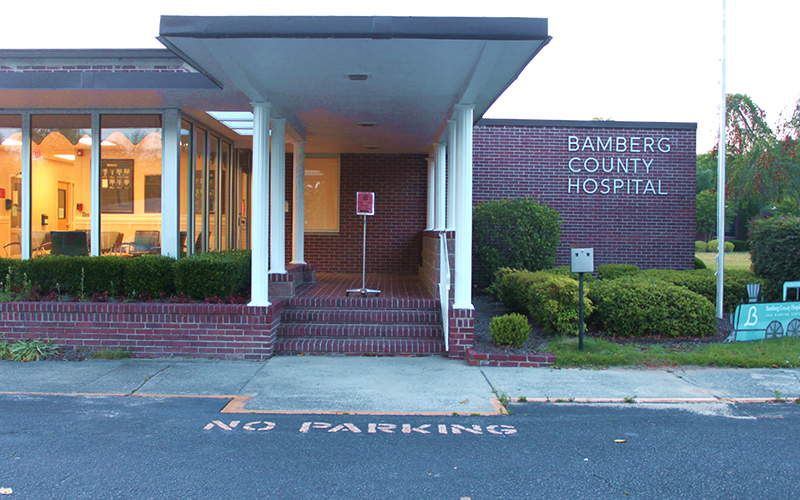
By Lindsay Street, Statehouse correspondent | State leaders are seeking to weave a tapestry of solutions to improve health outcomes for rural South Carolinians, facing deadly threats from preventable and chronic diseases, exacerbated by dwindling places providing primary care.
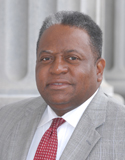
“We have to have a serious conversation dedicated to health care. We have to get around the table and talk about health care in rural communities,” said S.C. Rep. Leon Howard, the Democratic chair of the House Medical, Military, Public and Municipal Affairs committee. “If we just ignore rural communities when it comes to health care, we’re going to pay more later.”
This week, Gov. Henry McMaster reportedly met with members of a nonprofit, Medical Ministries, and at least one lawmaker in an effort to bring public money to the shoestring operation. It brings primary care to seven rural churches in the state. Across South Carolina, the continued existence of rural hospitals is threatened by resource issues with some facilities closing and others transforming.
“I want to take the doctors out to places where the people are ill because the ill people can’t make it to the doctors,” S.C. Sen. Paul Campbell, R-Berkeley, told Statehouse Report.
He said Medical Ministries is looking to open 63 more locations in rural churches throughout the state and that the state is looking to fund the locations at $120,000 each. He said not only will funding be considered in next year’s budget, but that the governor has signaled his office will look to bring additional funds to the program this year.
Over recent years, Medical Ministries has received some public dollars to operate. Some years the clinics, which serve 1,300 patients, receive $300,000 of state money, but other years it gets as little as $78,000, Medical Ministries CEO Bonnie Banks said.
McMaster’s office declined to confirm the meeting. Statehouse Report learned of the meeting from Campbell, who said he was present at the meeting with the governor,, nine ministers and Dorchester County GOP Chairman Tim Higgins, who confirmed the meeting with Statehouse Report.
“Our discussion was to find ways to fund health care clinics in the rural areas for those in need who can’t qualify for any other medical assistance,” Higgins said. “There were no pledges made, but everyone is very interested in supporting the program and investigating ways to make that happen.”
The need for better access
Campbell, who sits on the Senate Medical Affairs Committee, said the recent meeting highlights the growing need in South Carolina for continuing to address rural health.
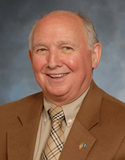
“We’re all working together in a nonpartisan fashion to see how we can make things better for rural South Carolinians,” he said.
Residents of rural communities are more likely to die from the five leading causes of death: heart disease, cancer, unintentional injury, chronic lower respiratory disease and stroke, according to a 2018 report by the National Conference of State Legislatures. The report said:
“Residents in rural counties often face difficulty accessing health care services. Those living in rural counties are more likely to be uninsured, live within a health professional shortage area (HPSA) and experience a local hospital closure.”
Three rural hospitals have closed in South Carolina since 2010: Bamberg County Memorial Hospital, Marlboro Park Hospital in Bennettsville and Southern Palmetto Hospital in Barnwell. Fairfield Memorial Hospital is slated to close later this year, leaving behind an emergency services clinic nearby. Other rural hospitals in the state could be in trouble, analysts say.
In Bamberg and Barnwell counties, officials have worked together to use $8 million in state grants to merge and streamline health services, including providing urgent care and other services for area communities.
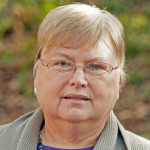
Health care economist Lynn Bailey said the problems are due to rural flight and an unsustainable model of for-profit health care.
“You cannot sustain a hospital without a base population of somewhere between 30,000 and 50,000 people and those people have to have the right combination of insurance — employer-sponsored insurance and Medicare and Medicaid — to survive as a business,” Bailey said.
S.C. Hospital Association spokesman Schipp Ames agreed rural hospital operate on thin margins.
“The majority of our rural hospitals are not operating with the biggest revenue lines. It’s a real struggle with those communities,” he said. He said the shuttering of hospitals are “a signal of decline” for rural communities.
Efforts underway
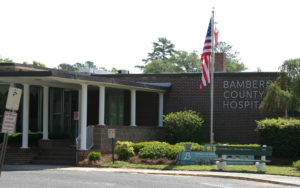 Already, state lawmakers have underwritten millions and sought different primary-care models to help rural health outcomes.
Already, state lawmakers have underwritten millions and sought different primary-care models to help rural health outcomes.
This year, McMaster signed into law an act that allows nurse practitioners to operate at the full extent of their practicing ability. In other words, they will be allowed to act as satellite primary-care providers in rural areas and not be tied so closely to urban-centered doctors. While McMaster’s office would not speak about Medical Ministries, it sent this comment from spokesman Brian Symmes on the nurse practitioner’s law:
“Governor McMaster has been committed to providing access to healthcare in South Carolina’s rural areas since taking office. This past legislative session, he advocated for and signed a bill that expanded nurse practitioners’ prescribing rights and expands the number of nurse practitioners that can operate under the supervision of licensed doctors from three to six. Potentially most importantly, however, is the fact that the bill eliminates the geographical limitations of a nurse practitioner’s ability to provide important healthcare services to South Carolinians in rural parts of the state.”
Bailey said the law will help with chronic disease care in rural parts of the state, but the program has yet to be processed through the medical boards. It may take two more years before rural South Carolina feels the effect of this law.
During the past legislative session, lawmakers also approved expanded telehealth options. According to the National Conference of State Legislatures, telehealth — allowing patients to follow up with doctors and specialists via the web or telephone — is one way to improve rural outcomes. However, S.C. Office of Rural Health CEO Graham Adams cautioned that telehealth is often dependent on broadband access, which isn’t readily available through all of rural South Carolina.
Health care officials working to help
The S.C. Department of Health and Human Services (DHHS), which operates the state’s taxpayer health care payers, has also stepped in to aid rural health outcomes with state money.
In 2014, the state authorized $40 million in spending to help rural hospitals determine how best to continue to provide care in those communities. Since that time, DHHS has distributed $32 million of that money across 10 facilities. This is the program that funded grants to keep services alive in Barnwell and Bamberg counties.

In the 2018-19 fiscal year, the department has been charged with continuing to help with consulting expenses of up to 25 percent of that cost, according to DHHS Director Joshua Baker.
“Our focus has very much been on helping these hospitals retool their business model and some cases walk away from that large capital investment and reinvest differently,” Baker said. For example, leaving a standalone emergency room and a primary care office, instead of keeping an entire hospital open. “We’ve tried to use our role as a payer to put the right incentives in place to help these hospitals adapt to their new smaller size.”
There has not been any application for funds this current fiscal year, Baker said.
Ames said the grants help hospitals make vital decisions about their future.
“The (tight) margins on rural hospitals, that’s why these grants exist: because hospitals don’t have the resources. Youre talking about (the expense of hiring) consultants,” he said.
The program requires rural hospitals to partner with larger systems, which offer help in terms of management, staff and support.

Adams said the transformation program can continue to help, but only if the community voice gets heard.
“As our state consolidates hospitals into larger and larger health systems, it is incumbent on those systems to look to every community in which they serve and say how do we best meet the needs of those communities,” he said. “The challenge is how do we create a consistent robust mechanism so that health systems can get that input, that honest unfiltered input from the community about what they need.”
Baker said DHHS is also committing funds to have doctors finish residencies in rural areas. The hope is that doctors fall in love with the areas they serve and continue to serve there after their residency has been completed, he said.
“There’s not a single strategy that is going to work for every community, we’re trying to give multiple tools they can put together and find what is right for them,” he said.
- Have a comment? Send to: feedback@statehousereport.com
NEWS BRIEFS
BRIEFS: Free coding program, spit ruling, school for dyslexic students

Staff reports | South Carolina is now offering a statewide, free coding program.
SC Codes is a partnership between nonprofit BuildCarolina and S.C. Department of Commerce. The mission of the program is to get more of the state’s workforce able to develop software. According to the website, employment in South Carolina’s technology industry expanded by an estimated 2,520 jobs in 2017 and contributed $10.8 billion to the state’s economy.
Learning takes place online but locations in Greenville and Columbia offer face-to-face learning.
In other news this week:
Spit take. A South Carolina administrative law judge has once again authorized development on an unstable islet known as Captain Sams Spit off of Kiawah Island. The move comes months after the state Supreme Court (for a fourth time) ruled Sept. 24 that preserving the island outweighed the benefits of developing it. In an earlier Supreme Court decision, the justices rebuked Administrative Law Judge Ralph King Anderson III’s decision to allow development there. On Sept. 24, Anderson authorized construction of the road and other infrastructure to facilitate a 50-house development there. In his ruling, he acknowledged the spit is eroding. The S.C. Environmental Law Project and S.C. Coastal Conservation League are appealing the decision. Again.
School for dyslexic children opens. Lakes and Bridges Charter School has opened in Easley. It is one of five free public schools in the nation for students with dyslexia and the first such school in the state.
S.C. business tax climate not friendly. A look at state business tax climates what’s to come in2019 show that South Carolina ranks 35th in the nation, at the bottom of a list looking at friendly climates. The Tax Foundation says its State Business Tax Climate Index allows comparisons between states on complex tax systems. “The Index is designed to show how well states structure their tax systems and provides a road map for improvement,” the report says.
Upstate program focuses on food. Spartanburg Community College is offering a certificate course at its new Center for Sustainable Agriculture. With support from the Mary Black Foundation and the Dominion Foundation, SCC’s Horticulture Department constructed a red barn-style building serving as the centerpiece of a new certificate program focused on sustainable agriculture, agribusiness and food systems. Learn more here.
- Have a comment? Send to: feedback@statehousereport.com
CALENDAR: General Assembly to address vetoes, conformity next week
Staff reports | A jam-packed mini-session is planned for lawmakers beginning Oct. 2 as the House and the Senate convene to update the state’s tax code and address Gov. Henry McMaster’s budget vetoes.
![]() The Senate convenes 2 p.m. Oct. 2 and the House convenes 1 p.m. Oct. 3.
The Senate convenes 2 p.m. Oct. 2 and the House convenes 1 p.m. Oct. 3.
On Sept. 26, the Senate Finance Committee advanced a bill to the Senate floor that will align the state government’s tax code with the federal government’s, a move called conformity. Conforming with the federal tax code makes tax filing in the state simpler and can help boost compliance and, therefore, state coffers, tax experts say.
But after the federal government’s massive overhaul of taxes in December 2017, the state was presented with a conundrum: straight conforming would raise taxes in the state. So lawmakers have hashed out a bill that allows for additional state exemptions to avoid raising taxes on most filers.
Tax preparers, accountant advocates and state revenue staff members have all urged action prior to the January session.
During the mini-session, the House and Senate may also choose to override vetoes made by McMaster in July in the state budget.
Click below for other items coming up in the Statehouse:
BRACK: Lessons from 17 years of offering S.C. commentaries
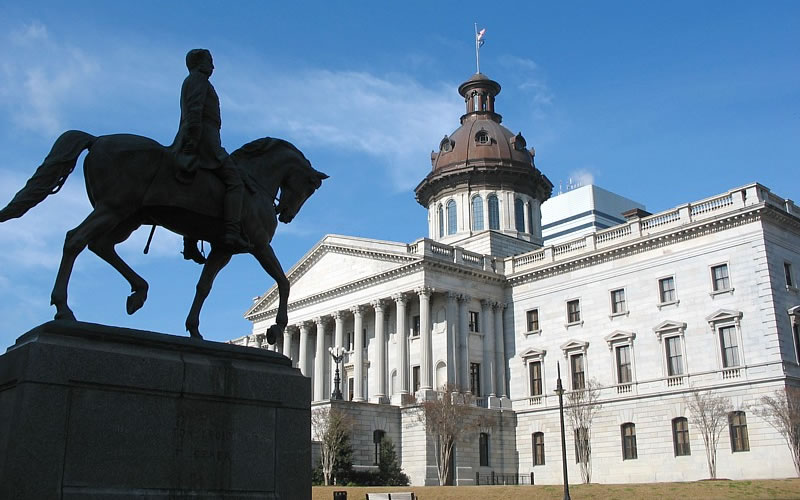
Commentary by Andy Brack, editor and publisher | After more than 850 weekly columns totaling more than 600,000 words over 17 years, I’m like the Farmers Insurance guy – I’ve seen a thing or two.
 And I’ve learned a thing or two about how politics, policy and governance works – and doesn’t – in the Palmetto State. Now with elections around the corner, maybe it’s time to share some of the bigger lessons.
And I’ve learned a thing or two about how politics, policy and governance works – and doesn’t – in the Palmetto State. Now with elections around the corner, maybe it’s time to share some of the bigger lessons.
The state’s taxes are too low. Some politicians yell you can’t throw money at things and fix them. Hogwash. After two decades of tax cut after tax cut by the GOP, the state’s tax base has eroded too much for lawmakers to be stewards of the public trust. If you believe you can’t throw money at things and fix them, consider why we have failing schools, inadequate health care access, crumbling infrastructure, university buildings that need hundreds of millions of dollars in maintenance, roads with years of backlogs to get fixed and more. Had there been enough money in a climate that promoted planning and fiscal responsibility, we wouldn’t be in the messes we are in.
South Carolina has become more like Washington. Partisanship and nastiness are increasing. Thanks to gerrymandered districts and political theatrics that have drifted from Congress to states, voters have too many choices of fringe candidates and not enough moderates. Politics should be an exercise in seeking compromise for the good of all people, not a steady stream of bluster, hemming and hawing.
State lawmakers often ignore the big issues. Legislators know in their guts that poverty in South Carolina is the root of most of our problems, yet they seem to ignore it. At election time, they’ll talk about education or health care or roads. They’ll work hard as hell to keep their power. But when it comes time to do the work in the halls of the Statehouse, they don’t really do that much for the common good. Too many take a walk or ignore looking for real solutions that will make a difference to South Carolinians who live on the edge, paycheck to paycheck.
Political parties are in the way. The state Democratic and Republican parties seem to be shells of their former selves. Two decades ago, they played a bigger game in elections and in day-to-day grind about politics and policies. Now they’re underfunded and understaffed. They seem to have less impact on the debate, which dulls the discourse. Some might argue that better leadership is needed. It might be, however, that we all get information from so many sources that we don’t have as much use for attempts by parties to influence us.
More civility is needed. After the melodrama on display this week in Washington, it’s clear more politicians are talking at each other than with each other. Our democracy, in South Carolina and Washington, can’t become stronger if we don’t respect and trust each other and spend time talking to hammer out compromises.
The little guy still is getting the shaft. In a patriarchal culture like South Carolina’s, those in power continue to support policies and tax breaks that benefit the establishment – big business, rich donors and the social elite. While the little guy has the power to make those in power tumble, too many voters are manipulated through fear and division by pandering politicians. Too many people vote against their economic interests because they focus on the tiny, not the bigger, picture.
State employees are paid too little. There are fewer of them than 20 years ago and they’re being asked to do more. We want them to teach our kids, protect our state and keep commerce moving. But we don’t honor them with wages that reflect their value.
Good people. Of course, these lessons are generalities. There are a fair number of Republicans and Democrats who “get it” and work to make things better. And there are a whole lot of people in state government who are just plain good. But they’re fewer and far between in the everyday tumble of Columbia. Let’s hope more reasonable people get elected in the fall.
- Have a comment? Send to: feedback@statehousereport.com.
SPOTLIGHT: AT&T
 The public spiritedness of our underwriters allows us to bring Statehouse Report to you at no cost. Today’s featured underwriter is AT&T Inc.
The public spiritedness of our underwriters allows us to bring Statehouse Report to you at no cost. Today’s featured underwriter is AT&T Inc.
AT&T Inc. (NYSE:T) helps millions around the globe connect with leading entertainment, mobile, high speed Internet and voice services. We’re the world’s largest provider of pay TV. We have TV customers in the U.S. and 11 Latin American countries. We offer the best global coverage of any U.S. wireless provider*. And we help businesses worldwide serve their customers better with our mobility and highly secure cloud solutions.
- Additional information about AT&T products and services is available at http://about.com.
- Follow our news on Twitter at @ATT, on Facebook at http://www.facebook.com/attand YouTube at http://www.youtube.com/att.
* Global coverage claim based on offering discounted voice and data roaming; LTE roaming; voice roaming; and world-capable smartphone and tablets in more countries than any other U.S. based carrier. International service required. Coverage not available in all areas. Coverage may vary per country and be limited/restricted in some countries.
MY TURN, Rivers: League provides civics resources for S.C. high schools
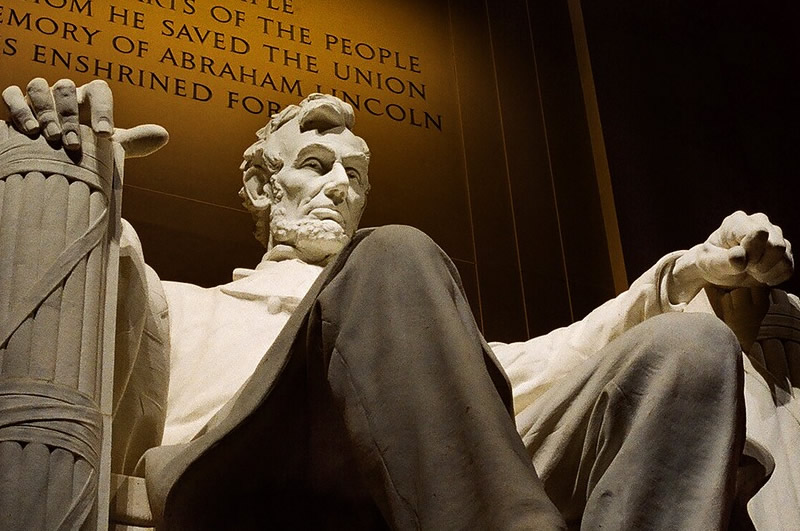
By Janelle Rivers, special to Statehouse Report | Social studies coordinators, supervisors and lead teachers in all South Carolina school districts now have a resource that explains South Carolina’s election system and permits eligible students to register to vote online.
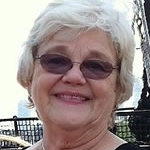
Lexington School District One teachers and social studies coordinator, Albert Robertson, worked with the League of Women Voters to develop and field test the resources during President’s Week last year. Members of the League of Women Voters of the Columbia Area developed and refined a script and PowerPoint that were distributed without cost to all district social studies coordinators in South Carolina for use by teachers of American Government and Economics. The League of Women Voters of South Carolina endorsed the project.
Robertson stated, “It was great to have LWV members come and help teachers present the information. We are always looking for experts to have come into our classrooms, and the students responded very well to the LWV members. We want our students to grow into active and engaged citizens, and we appreciate the time and efforts of the LWV in helping to put these fantastic resources together!”
Teachers in all parts of the state can use this resource to introduce students to the state’s election site, www.scvotes.org, where anyone who is eligible can register by entering their driver’s license and social security numbers. The online system verifies information with the S.C. Department of Motor Vehicles, and the State Election Commission mails the voter identification card to the address that is on the voter’s driver’s license.
The League also provided two other resources. Teachers were offered a PowerPoint presentation with information about how to use ProCon.org, a nationally respected resource for examining pros and cons of a variety of policy issues and how its sources are documented. The other resource explained how to access the League’s candidate voter information web site, www.VOTE411.org,
The League supports www.VOTE411.org, which allows candidates to enter their own information prior to an election and provides prospective voters with customized ballot information. Users can use the site to browse information about elections and candidates all over the United States. Most importantly, if voters choose to enter their addresses, the www.VOTE411.org website will filter information for their local precincts and provide information about the races and referendum questions that they will see when they go to the polls. The site does not collect names or addresses of users; however, potential voters have the option of sending themselves an email with a reminder of any selections they choose to make while they are studying the information on the web site.
Members of the League of Women Voters of the Columbia Area members have volunteered to assist schools in whatever ways the schools desire, including providing guest speakers or voter registration resources. The League of Women Voters never supports or opposes individual candidates or political parties; instead, the League works to empower and inform voters.
Robertson, who also is president of the South Carolina Social Studies Supervisors Association, said feedback has been positive. Teachers appreciate having additional resource materials, and this project has provided another way for League members to help educate students about the responsibilities of citizenship and the importance of voting.
One of the nation’s most trusted organizations since its beginning in 1920, the League of Women Voters encourages informed and active participation in government, works to increase understanding of major public policy issues, and influences public policy through education and advocacy. Membership is open people age 16 and older.
Janelle Rivers is president of the League of Women Voters of the Columbia Area.
- Have a comment? Send it to: feedback@statehousereport.com.
FEEDBACK
FEEDBACK: Burr under your saddle?
![]() Have a question for a candidate? Have a burr under your saddle about some issue?
Have a question for a candidate? Have a burr under your saddle about some issue?
We love hearing from our readers and encourage you to share your opinions. But you’ve got to provide us with contact information so we can verify your letters. Letters to the editor are published weekly. We reserve the right to edit for length and clarity. Comments are limited to 250 words or less. Please include your name and contact information.
- Send your letters or comments to: feedback@statehousereport.com
MYSTERY PHOTO: Top of a building
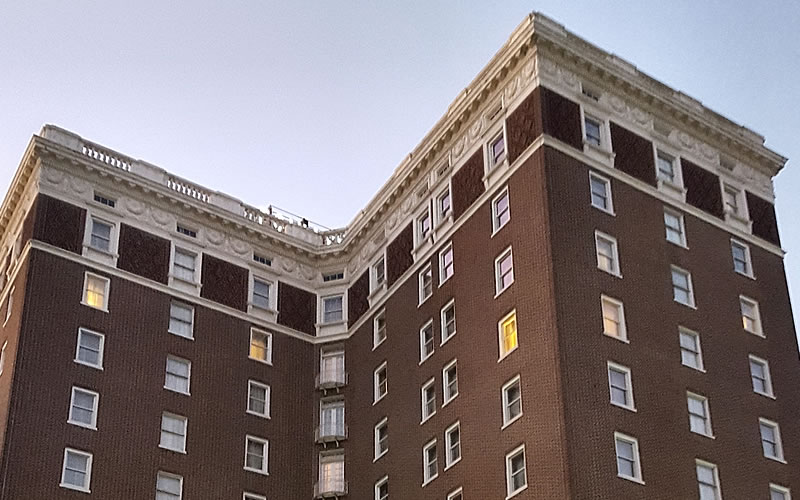
After some recent relatively easy mysteries, this one might be tough. So tough, in fact, that you might need a hint: It’s somewhere in South Carolina, which you probably assumed anyway. Send your guess to: feedback@statehousereport.com. And don’t forget to include your name and the town in which you live.
Our previous Mystery Photo
 Our Sept. 21 mystery showed a different kind of 21 Club located at 21 Magazine Street in Charleston – site of the Old City Jail. Congrats to a baker’s dozen of photo sleuths who identified the old building: Haidee Stith of Lexington; David Lupo of Mount Pleasant; Henry Horres, Addison Ingle and DeDe Tyler, all of Charleston; Philip Cromer of Beaufort; George Graf of Palmyra, Va.; Harvey Shackelford of Newberry; Steve Willis of Lancaster; Bill Segars and Don Clark, both of Hartsville; Jay Altman of Columbia; and Theresa Campana-Haller of Milford, Conn. Thanks also to Dale Rhodes of Richmond, Va., for suggesting the photo.
Our Sept. 21 mystery showed a different kind of 21 Club located at 21 Magazine Street in Charleston – site of the Old City Jail. Congrats to a baker’s dozen of photo sleuths who identified the old building: Haidee Stith of Lexington; David Lupo of Mount Pleasant; Henry Horres, Addison Ingle and DeDe Tyler, all of Charleston; Philip Cromer of Beaufort; George Graf of Palmyra, Va.; Harvey Shackelford of Newberry; Steve Willis of Lancaster; Bill Segars and Don Clark, both of Hartsville; Jay Altman of Columbia; and Theresa Campana-Haller of Milford, Conn. Thanks also to Dale Rhodes of Richmond, Va., for suggesting the photo.
Graf shared something about the jail we didn’t know: “The infamous Lavinia Fisher was held in the Old Charleston Jail. According to findagrave.com, Lavinia Fisher was hanged in 1820 but the crime was highway robbery— a capital offense at the time—not murder. She was a member of a large gang of highwaymen who operated out of two houses in the Backcountry outside of Charleston, the Five Mile House and the Six Mile House. The legend of Lavinia Fisher had probably already started but her (true) last words to the crowd at her hanging guaranteed her immortality: ’If you have a message you want to send to hell, give it to me—I’ll carry it.’”
- Send us a mystery: If you have a photo that you believe will stump readers, send it along (but make sure to tell us what it is because it may stump us too!) Send to: feedback@statehousereport.com and mark it as a photo submission. Thanks.
S.C. ENCYCLOPEDIA
HISTORY: Artist William Halsey

S.C. Encyclopedia | Born in Charleston on March 13, 1915, artist William Halsey was the son of Ashley Halsey and Eleanor Loeb. His father was a partner in the Halsey Lumber Company. Educated in Charleston schools, in 1928 Halsey became a youthful protégé of the Charleston Renaissance artist Elizabeth O’Neill Verner. He attended the University of South Carolina for two years before going to the Boston Museum School (1935–1939), where he studied anatomy and fresco painting.
On June 5, 1939, he married Sumter native and fellow artist Corrie McCallum. The couple had three children. In 1939 and 1940, he spent18 months in Mexico on a Paige Fellowship from the Museum School. Returning to the Southeast he taught for a short period in Charleston before moving to Savannah to direct the art school at the Telfair Academy. He settled in Charleston permanently in 1945 and supported himself by teaching, first at the Gibbes Art Gallery and then independently. From 1972 until his retirement in 1984, he was artist in residence at the College of Charleston, where the William Halsey Gallery at the Simons Center for the Arts is named in his honor.
Halsey traveled extensively, funded by friends and supporters who were rewarded with a work of art in return for their modest subventions. The Yucatán peninsula in Mexico was one of his favorite destinations, but he also went to Greece, Spain and Morocco. In 1971, with McCallum, he published A Travel Sketchbook, an annotated selection of their drawings, and in 1976 he issued Maya Journal. Halsey’s early work gained critical attention in several New York exhibitions.
Unlike his predecessors who emphasized charm and sunlight in their portrayals of Charleston, Halsey reveled in the decay, colors, and textures offered by the old city. It was precisely these qualities that inspired the nonrepresentational work that dominated his mature output. Instead of painting conventionally in oil on canvas, he elected to use Masonite, which provided a firm backing for his frequent reworkings of the surface. The firmness of the support was advantageous when he added collage elements, such as old paint rags, torn and stained bits of his own clothing, and African textiles given to him by his friend Merton Simpson, a dealer in African art. About 1964, Halsey began to translate his collages into three-dimensional sculptures, largely totemlike assemblages, made from scraps of wood and later metal. Late in his career he worked with oil pastels on paper in a bright range of colors enlivened by expressionist gestures.
A prolific artist, Halsey was active in arts organizations in the state, such as the Guild of South Carolina Artists, and his work was regularly included in a broad range of exhibitions across the Southeast. The Greenville County Museum of Art organized two major exhibitions: in 1972 a retrospective of his work and in 1999 a posthumous exhibition. Halsey is represented in the collections of the Gibbes Museum of Art, the South Carolina State Museum, the Columbia Museum of Art, the Greenville County Museum of Art, and the College of Charleston. Halsey died on Feb. 14, 1999, in Charleston.
— Excerpted from an entry by Martha R. Severens. This entry hasn’t been updated since 2006. To read more about this or 2,000 other entries about South Carolina, check out The South Carolina Encyclopedia, published in 2006 by USC Press. (Information used by permission.)
ABOUT STATEHOUSE REPORT
Statehouse Report, founded in 2001 as a weekly legislative forecast that informs readers about what is going to happen in South Carolina politics and policy, is provided to you at no charge every Friday.
- Editor and publisher: Andy Brack, 843.670.3996
- Statehouse correspondent: Lindsay Street
More
- Mailing address: Send inquiries by mail to: P.O. Box 22261, Charleston, SC 29407
- Subscriptions are free:Click to subscribe.
- We hope you’ll keep receiving the great news and information from Statehouse Report, but if you need to unsubscribe, go to the bottom of the weekly email issue and follow the instructions.
- © 2018, Statehouse Report. All rights reserved.
















 We Can Do Better, South Carolina!
We Can Do Better, South Carolina!